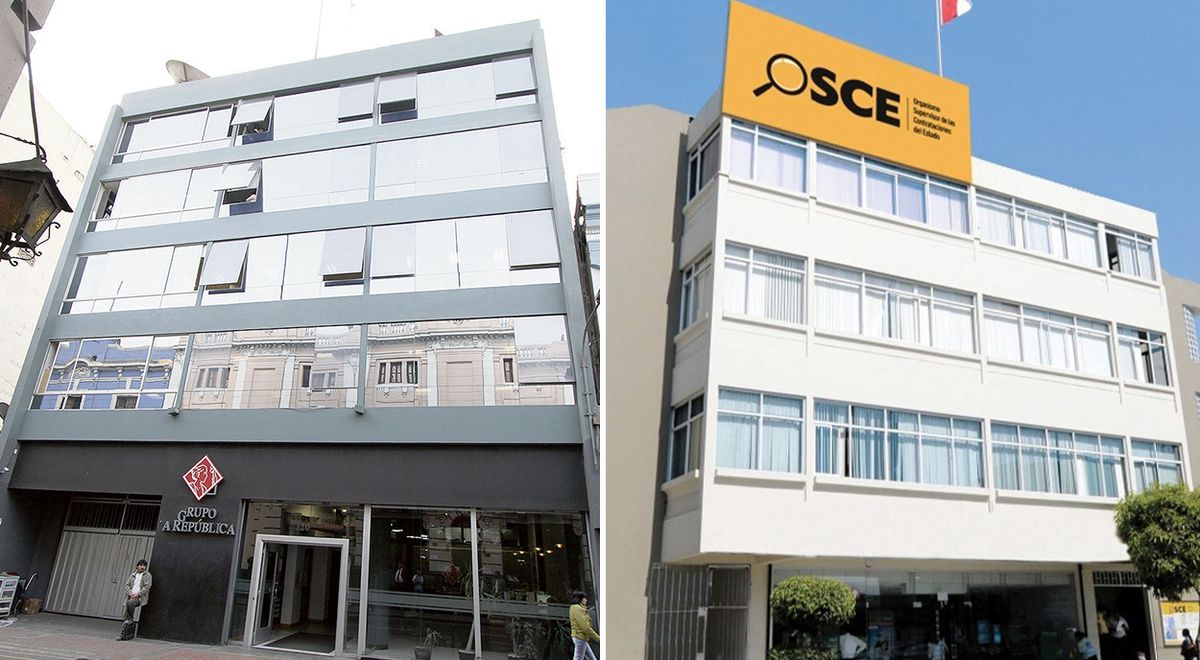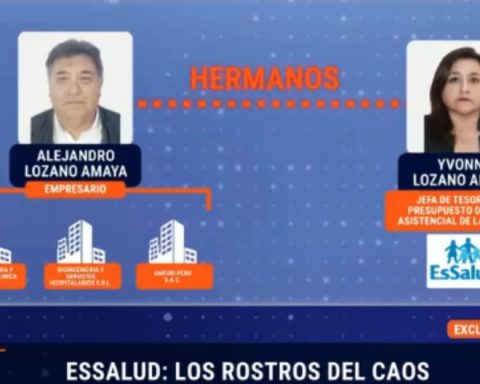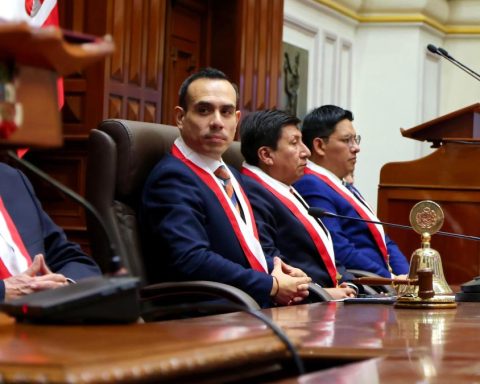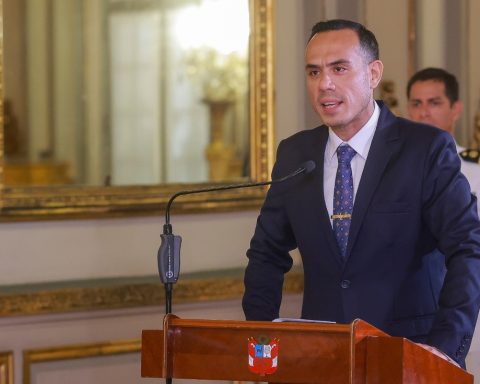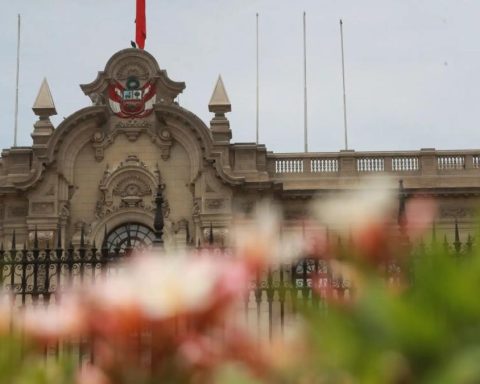The Supervisory Agency for State Procurement (OSCE) sanctioned the La República Publicaciones Group not to contract with the State, until February 2023, in a non-technical process, that contradicts rulings of the Constitutional Court, distorts reality, hides information from the OSCE and does not respect due process.
In this article we are going to tell what happened. We are clear that we are an interested party in the process. This is not about confronting the OSCE and its officials for not listening to the company’s defense.
We focus on reality. We want the truth and that the institutions fulfill their functions with technical sense without political interference or organized crime. For The development of this investigation is based on what Law 30225 says, the ruling of the Constitutional Court (TC), of November 2020, in file No. 03150-2017-PA/TC, the resolution of the Contracting Court No. 0125-2021-TCE-S3, of January 2021. In addition, the review of the 108 files initiated against Grupo La República and the discharge documents of various institutions and the Judicial Power.
The origin
The desire to deprive The Republic of state advertising began at some point, after September 2021. A key and dark time in the Peruvian State. The alleged criminal organization around President Pedro Castillo, which is being investigated by the National Prosecutor’s Office and the Special Team of Prosecutors against the Corruption of Power, was at its peak.
September was a key month in the recent history of the OSCE. On September 24, 2021, the Minister of Economy, Pedro Francke, accepted the resignation of Sofía Milagros Prudencio Gamio as executive president of the OSCE. She had held that position since April 2018.
Francke remained head of the MEF until February 1, 2022, but he never named Prudencio Gamio’s replacement. Neither have their successors.
From September 25, 2021, that is, during the entire period in which it is decided to prosecute and sanction a media outlet critical of the government, OSCE is in the hands of an interim executive president: Diego Montes Barrantes, general secretary, with 10 years in the institution. It is true that this provisional nature in itself does not show anything irregular. It’s just a detail. It is known that in politics and for criminal activities coincidences do not exist. Opportunities prevail.
At some point, post-September 2021, the Office of Studies and Business Intelligence, headed by Miguel Ángel Caroy Zelaya, requested ex officio supervision of the advertising contracts of the newspaper La República. There is no record in the files that specifies whether it was done in writing, orally, by phone call or fax. The documents only say that the investigation was born in that office, but not the specific event that generated it.
In good faith, we assume that it started from a certain and public fact: from November 19, 2020 to July 27, 2021, Claudia Cornejo Mohme, daughter of María Eugenia Mohme, shareholder of Grupo La República, served as Minister of Foreign Trade and Tourism.
Caroy has been working in that office for 12 years. It is impossible to imagine that she did not know the relationship between Cornejo Mohme and La República, since November 2020. Maybe he didn’t report earlier out of fear. Voucher. It is common in public administration. Let’s say it’s another detail, but they add up.
The poison bullet
Caroy’s order reached the Subdirectorate for Identification of Risks in Direct Contracting and Excluded Assumptions (SIRE) of the General Directorate of Risks (DGR). We do not know what day they began to work, nor for how long they did so. We know that they concluded their work on the penultimate day of 2021. The investigation was carried out by Deputy Director Wendy Cruz Kamiche and officials Bárbara García and Milagros Caviedes.
They collected information from the OSCE’s Electronic State Procurement System (SEACE). The search returned 596 service orders and 10 direct awards. No contract with the Ministry of Foreign Trade and Tourism.
With this information, they prepared an Excel list that includes the service order, date, type of record, value, entity and description of the service. The list notes that the great majority of the service orders of the municipalities indicate that they contract under a special regime. What is that regimen? OSCE does not want to find out.
Details. OSCE agrees with the interests of the Government. Photo: diffusion
Then, they establish two other truths: Claudia Cornejo’s family relationship and María Eugenia Mohme’s relationship with Grupo La República. In addition, they requested and received the defenses from La República and transcribed the articles of Law 30225.
On Wednesday, December 30, 2021, Wendy Cruz signs opinion No. 192-2021/DGR-SIRE and sends it to the Director of Risk Management, Ana María Gutiérrez Cabani.
The opinion is contradictory. In several paragraphs of the document it is said that the State Procurement Law (No. 30225) prohibits ministers and their close relatives from contracting with the State for up to 12 months after leaving office, “only within the scope of their sector.” That is to say, that the prohibition of the La República Group was with respect to the Ministry of Foreign Trade and Tourism, the sector where Cornejo Mohme worked.
Despite which Cruz concludes that it is in the presence of a possible violation of the law. Of the discharges from the La República Group, it only records that it received them and completely ignores the investigation and analysis of the special regime referred to by the municipalities.
In other words, for the SIRE everyone was born guilty. Despite the fact that the TC has told the OSCE that it cannot presume that “a person by the mere fact of being a family member or relative of an official is resorting to undue influence to obtain a public contract.”
In addition, on the first page of the document, under the title of previous question, it indicates that the “purpose (is) to identify indications of the commission of an infraction… liable to be sanctioned by the State Contracting Court.” In addition, it recognizes that the entity that must issue the sanction is the TCE, after evaluating the evidence and the exculpatory elements.
Kill the Republic
From that moment on, the story turns dark. On January 13, 2022, with memorandum no. D000022-2022-OSCE-DGR, the director of Risk Management, Ana Gutiérrez Cabani, sends the opinion 192-2021/DGR-SIRE to the president of the State Contracting Court , Cecilia Ponce Cosme.
From January 25 to March 2022, Cecilia Ponce and the technical secretary of the State Contracting Court (TCE), Carola Cucat Vílchez, they sent hundreds of copies of the rulings to the Second, Fourth and Fifth Chambers and to each of the municipalities and state institutions.
Two copies of the opinion for each contract, one for the municipality and the other for the institutional control body of the Comptroller, plus those sent to the rooms. There are 606 contracts. About 2000 copies of the opinion.
The sommelier of all trades says: “Application of sanction against Grupo La República… for contracting with the State in any of the cases impediments provided for in article 11 of the Law…”.
The opinion that supposedly only gathered indications became a sanction that had to be applied immediately. Each one of the institutions is ordered to inform all the details of the contracts, present their defenses and, without saying so, from that day on not to continue contracting with The Republic.
The show trial
On March 21, the 2nd, 4th and 5th Chambers of the TCE initiated 108 sanctioning procedures against the Republic. In parallel, Cecilia Ponce and Carola Cucat bombarded the municipalities and other entities with the opinions.
On May 21, 2022, in full development of the processes, the interim president of the OSCE reconfigured the 2nd and 5th Chambers of the TCE, with an excuse that took place in June 2021. On September 7, the 2nd Chamber of the TCE issued the first two sanctions for receiving publicity from the Provincial Municipality of Islay-Mollendo and the San Agustín de Arequipa National University (UNSA). The sanctions prohibit the Republic from contracting with the State for 4 and months, respectively, at the national level and in all sectors.
Both resolutions are identical. They are a copy of the opinion prepared by SIRE on December 30, 2021. The members Carlos Quiroga Periche, Olga Chávez Sueldo and Daniel Paz Winches They dismiss the arguments and the ruling of the November 2020 TC saying that this ruling resolves the situation of relatives of congressmen. Which is not exact. Of the special regime of the municipalities they insist on not saying anything, nor mentioning it.
The special regime that appears in the SIRE list is the General Law of Municipalities, which has its antecedent in the Organic Law of the PJ and the Civil Procedure Code, according to the information that the Judiciary and the Provincial Municipality of Piura sent to OSCE.
In the 90s, it was seen that the courts were outside of Lima they had to publish their edicts in the official newspaper El Peruano, which generates expenses for the litigants and delays, Therefore, the judicial journal was established in each judicial district outside the country. Even Callao has a judicial newspaper.
Since then, every two years, Some 29 superior courts of justice based outside of Lima carry out selection processes for the newspaper that will publish the notifications. Subsequently, the Law of Municipalities established that the municipalities also publish their ordinances in the judicial newspaper, for the knowledge of their entire community.
Infographic – The Republic
In other words, the municipalities do not seek to contract with the Republic and, therefore, no minister or other official can influence that election. They send their notices to this newspaper because that is the law, long before Cornejo Mohme was minister.
Neither the SIRE opinion nor the TCE resolutions take this reality into account. They ignore it and hide all information related to this point, because if they take it into account there is no possible sanction.
Only on September 13, 2022, six days after the first sanction against La República, the secretary of the OSCE Court asked the Superior Court of Justice of Piura to report how the judicial newspaper is chosen.
With a lot of patience and in a simple and duly documented language, with resolutions and graphics, on September 19, the Superior Court of Piura answered what were the guidelines established by the Executive Council of the Judicial Power, at the national level. La República is or was only a judicial newspaper in eight districts: Arequipa, Ica, La Libertad, Lambayeque, Sullana, Tumbes, Piura and Moquegua.
Repentance
But there are two other previous documents that remain hidden. A technical report from the Provincial Municipality of Piura, dated May 12, 2022. This report has become a digital file that is difficult to review and only appears in one file.
Said legal technical report informs that on January 21, 2022, the deputy director of SIRE, Wendy Cruz Kamiche, issued the multiple official letter No. D0000098-OSCE-SIRE that contradicts and collapses opinion 192-2021/DGR-SIRE. This official letter is prior to the moment in which the president and the technical secretary of the State Contracting Court, Cecilia Ponce Cosme and Carola Cucat Vilchez, respectively, began to bombard the municipalities with the aforementioned opinion. But, the office was not part of the package.
The official letter clarifies: a) that opinion 192-2021/DGP-SIRE only identifies indications, that is, it is not a sanction; b) that it is up to the TCE to establish whether the law was broken and c) that the impediment of the La República Group covers the sector to which Mrs. Claudia Cornejo Mohme belonged, this is the Ministry of Foreign Trade and Tourism. With this entity, in said period of time, there is no contract.
An opinion that becomes a weapon
The opinion that supposedly it only identifies the indications that must be evaluated by the Contracting Tribunal became March 2022 in a sanction that must be applied immediately throughout the State.
The summary of the OSCE’s trades is aimed at creating panic in the municipalities and that, from that moment, the State’s announcement in the newspaper La República is cut off.
